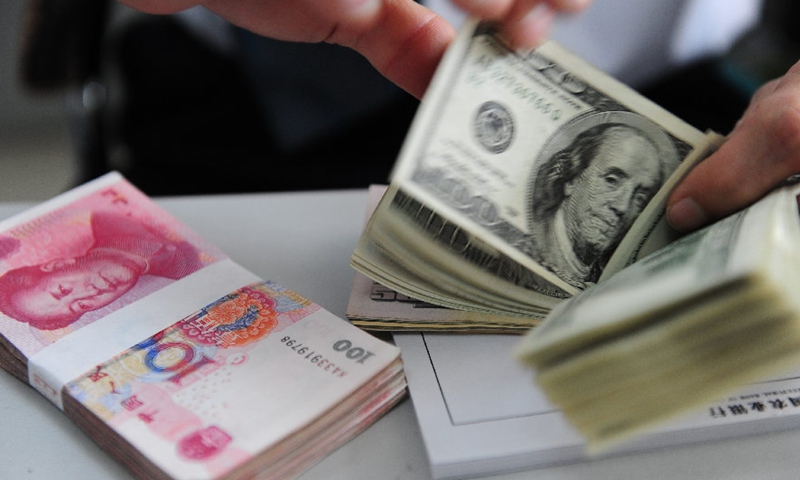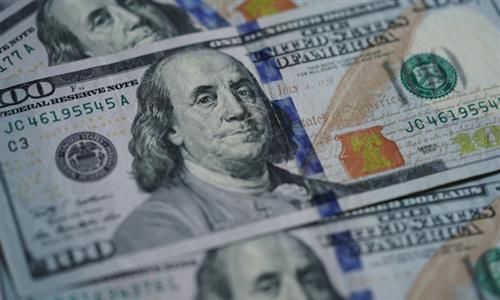
A teller counts U.S. dollar bills at a bank in Qionghai, south China's Hainan Province.Photo:Xinhua
The Chinese mainland reduced its holdings of US Treasury bonds for a third consecutive month in June to $835.4 billion, dropping to a 14-year low, data from the US Treasury Department showed on Tuesday local time.
China remains the second-largest holder of US Treasury bonds only after Japan, but it has kept levels under $1 trillion since April 2022. Holdings were cut from August 2022 to February 2023, with a slight pick-up in March of $20.3 billion, before falling again in April.
China's reduction is a long-term strategy and the US has helped cause this trend with its irresponsible policies, which will eventually backfire, experts said.
China has been cutting its holdings amid bilateral tensions, aiming to reduce dependence on the US currency while diversifying its offshore assets, Xi Junyang, a professor at the Shanghai University of Finance and Economics, told the Global Times on Wednesday.
China will make further reductions but at a moderate pace to avoid market volatility, Xi said.
Japan, the largest holder, increased its holdings in June to $1.11 trillion from $1.10 trillion in May. The UK remained the third-largest holder, with an increase to $672.3 billion.
In June, the total of all net foreign acquisitions of long-term securities, short-term US securities and banking flows reached $147.8 billion. Net foreign private inflows were $119.8 billion, and net foreign official inflows were $28.0 billion, read a statement by the US Treasury Department.
Foreign residents increased their holdings of long-term US securities in June, and net purchases were $244.0 billion. Net purchases by private foreign investors stood at $183.9 billion and net purchases by foreign official institutions came in at $60.2 billion.
An analyst at Fitch Ratings on Tuesday warned that US bank ratings, including JPMorgan Chase, could be downgraded if Fitch further cuts its assessment of the operating environment for the industry, CNBC reported on Tuesday.
Another one-notch downgrade of the industry's score, to A+ from AA-, would force Fitch to reevaluate ratings on each of the more than 70 US banks it covers, analyst Chris Wolfe told CNBC.
Fitch cut the long-term US foreign-currency issuer default rating to AA+ from AAA on August 1. The move reflected expected fiscal deterioration over the next three years, a high and growing general government debt burden, and the erosion of governance, read the statement.
The downgrade won't have a significantly negative impact on the US financial sector, but the potential for future deterioration has already triggered market volatility, Xi said.
The dominant international status of the US dollar will decline over the longer term as countries seek further currency diversification, and that's another reason some countries are cutting their holdings of US debt, Xi said.
Global Times



